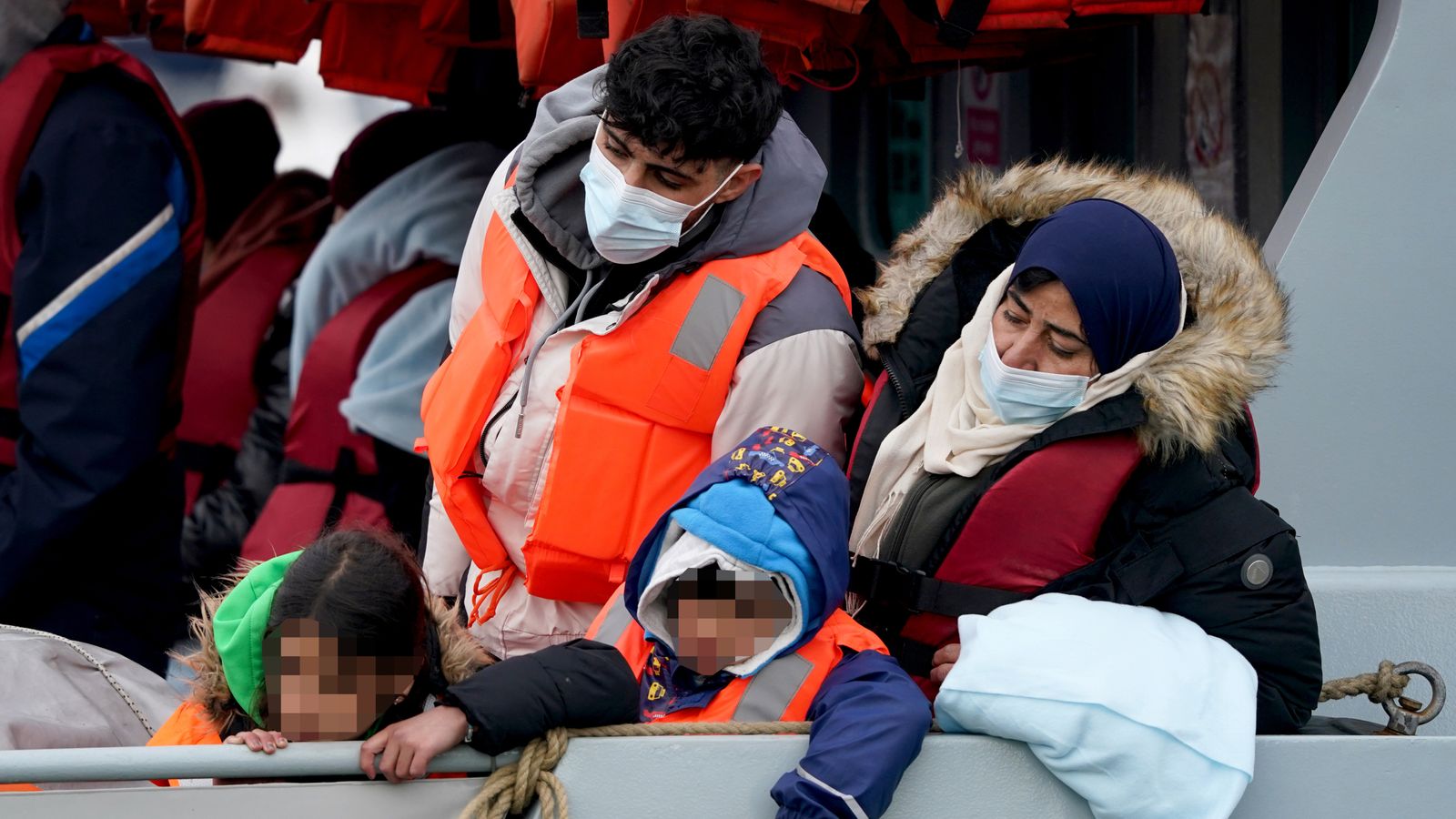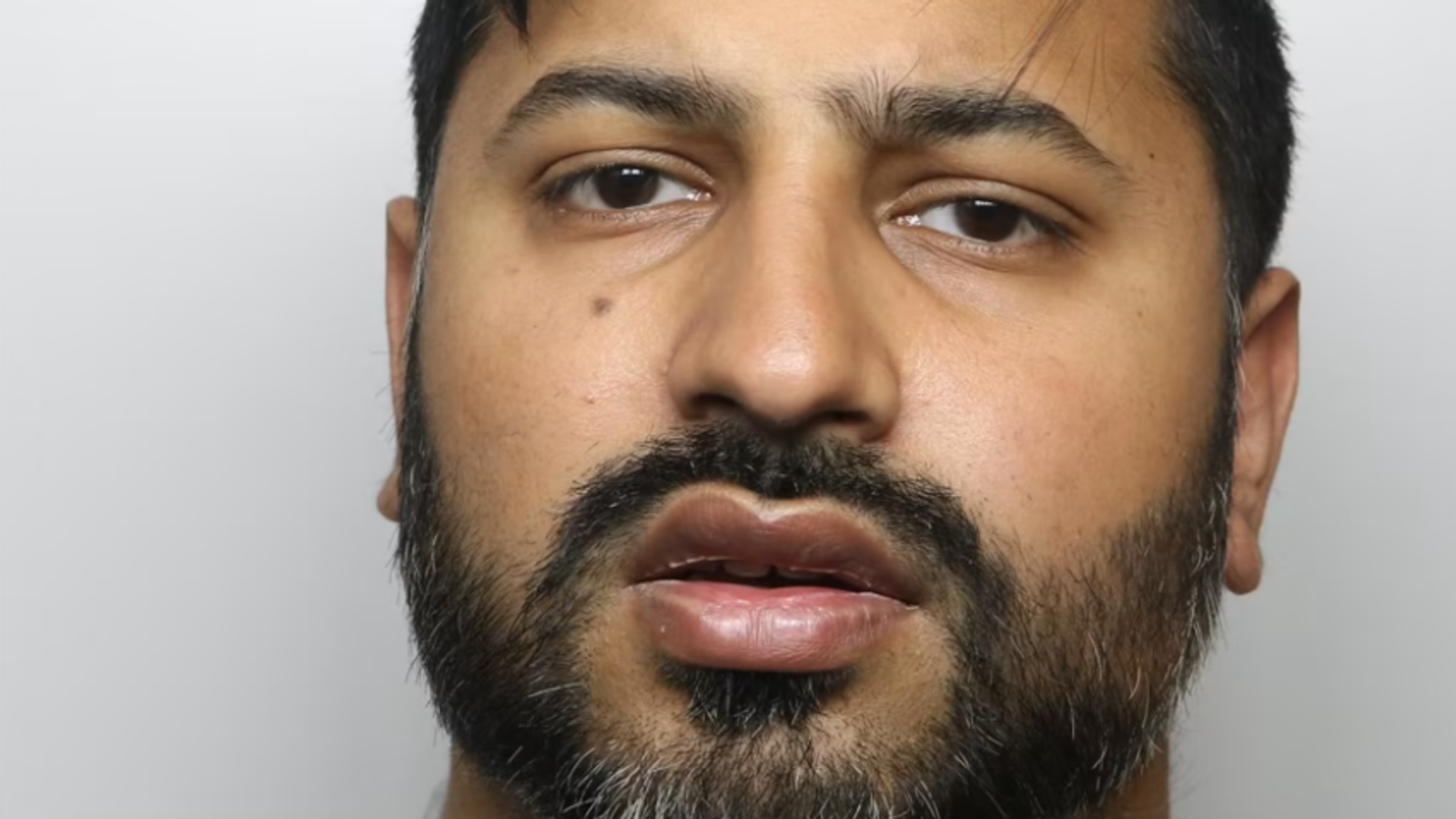Immigration officers will be allowed to use force on child asylum seekers if their families resist deportation to Rwanda and other countries under new laws.
In a note on the Illegal Migration Bill about child asylum seekers, published on Friday, the Home Office added: “Using force on children in family groups may, unfortunately, be necessary if a family is resisting removal.
“Using force on children would be an absolute last resort and would only be used if completely necessary.”
The note said it is “vital that we do not create incentives for unaccompanied children or family groups to make dangerous small boat crossings”.
It added that the law already allows immigration officers and detainee custody officers to use “reasonable force to exercise their powers” and that is not age restricted.
The policy will be under review and there will be a specific consultation on it before any changes are made, the Home Office added.
Under the new law, which is making its way through parliament, an unaccompanied child who arrives in the UK illegally from a safe country of origin “may be returned to their country of origin before they are 18”, the note added.
Suella Braverman ‘encouraged’ by talks with European Court of Human Rights in push to have migrants sent to Rwanda
Rishi Sunak vows to stop small boat crossings: ‘If you come here illegally, you will not be able to stay’
What is asked in the 20-day questionnaire asylum seekers must fill out under ‘fast-track’ plan?
It added that there is no requirement for unaccompanied children to be removed until they turn 18 years old “but there is a power to do so”.
Read more:
Is the government’s new Illegal Migration Bill legal?
MPs debating Illegal Migration Bill clash as Tory criticises ‘swarm’ of arrivals
Renowned London-based human rights lawyer Caoilfhionn Gallagher KC, who is also Ireland’s special rapporteur for children, accused the government of having “no moral compass”.
“Horrified to hear of Home Office plans for restraint of children if they resist forcible deportation,” she said. “Physical restraint can result in severe physical and psychological harm, or death.
“Think of Jimmy Mubenga and the work of ICARS.”
Mr Mubenga was a 46-year-old Angolan man who died in 2010 after three security guards restrained him face-forward in his seat on a deportation flight from Heathrow to Angola.
ICARS – the International Coalition Against Restraint and Seclusion – campaigns against the use of restraint of children around the world.
Please use Chrome browser for a more accessible video player
Home Secretary Suella Braverman unveiled the government’s new bill earlier in March, which will change the law so those who arrive in the UK on small boats cannot stay in the UK and will be detained then removed promptly.
They could either be deported back to their home country or a “safe third country” such as Rwanda, which the government has a deal with but has so far seen nobody removed to due to legal challenges.
Prime Minister Rishi Sunak backed the “tough but fair” policy but the plans have come under fire from opposition parties and human rights charities.
The UN Refugee Agency said the proposals would “amount to an asylum ban”.
As the bill was debated earlier this week, Mr Sunak defended plans to detain child migrants and said excluding them would “incentivise” criminal gangs to bring them to the UK in small boats.
Age Assessment Board
The Home Office launched a National Age Assessment Board on Friday to “resolve age disputes” of asylum seekers arriving in small boats as part of the Nationality and Borders Bill reform.
Specialist social workers will support local authorities and the Home Office to establish just how old people who claim to be children are through scientific techniques such as dental analysis.
The Home Office said this was necessary because between 2016 and the end of 2022 there were 7,900 asylum cases where age was disputed – with 49% (3,833 people) later found to not be children, but adults.
“Serious cases have seen adults being sent to children’s schools, or children being treated as adults, in both cases putting children at risk of harm,” the Home Office said.










